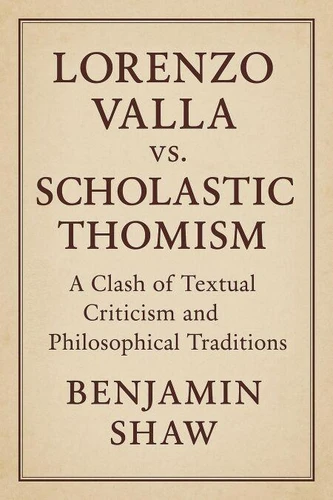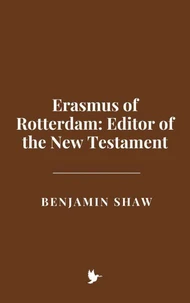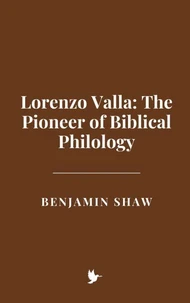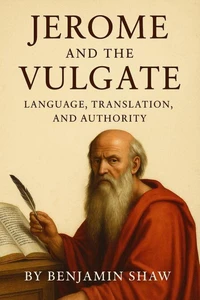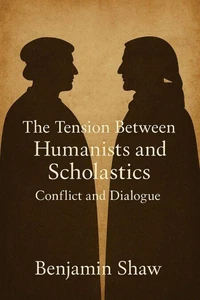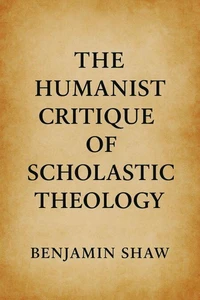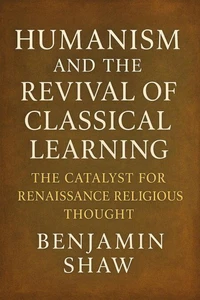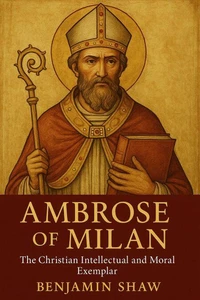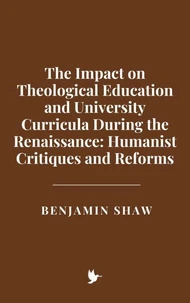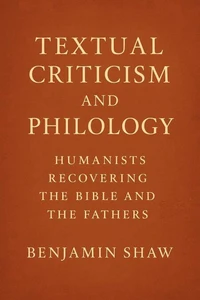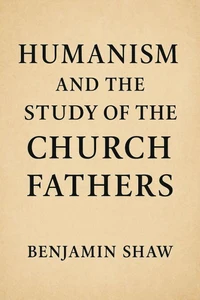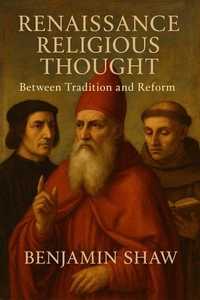Lorenzo Valla vs. Scholastic Thomism: A Clash of Textual Criticism and Philosophical Traditions
Par :Formats :
Disponible dans votre compte client Decitre ou Furet du Nord dès validation de votre commande. Le format ePub est :
- Compatible avec une lecture sur My Vivlio (smartphone, tablette, ordinateur)
- Compatible avec une lecture sur liseuses Vivlio
- Pour les liseuses autres que Vivlio, vous devez utiliser le logiciel Adobe Digital Edition. Non compatible avec la lecture sur les liseuses Kindle, Remarkable et Sony
 , qui est-ce ?
, qui est-ce ?Notre partenaire de plateforme de lecture numérique où vous retrouverez l'ensemble de vos ebooks gratuitement
Pour en savoir plus sur nos ebooks, consultez notre aide en ligne ici
- FormatePub
- ISBN8231710058
- EAN9798231710058
- Date de parution06/08/2025
- Protection num.pas de protection
- Infos supplémentairesepub
- ÉditeurWalzone Press
Résumé
Lorenzo Valla vs. Scholastic Thomism: A Clash of Textual Criticism and Philosophical Traditions by Benjamin Shaw offers a compelling exploration of one of the pivotal intellectual confrontations of the Renaissance. This scholarly work delves into Lorenzo Valla's groundbreaking critique of medieval scholasticism, focusing on his use of philology and rhetoric to challenge the dominant Aristotelian and Thomistic frameworks that shaped Western philosophy and theology for centuries.
Through meticulous textual analysis, Valla exposed errors in key texts, including the famous Donation of Constantine, and questioned the philosophical and theological assumptions underpinning scholastic Thomism. Shaw's study illuminates Valla's methods, the resistance he faced, and the profound legacy his humanist critique left in reshaping intellectual history. This book is essential for readers interested in Renaissance humanism, the history of philosophy, and the evolution of theological thought, revealing how language, style, and critical inquiry can redefine tradition and authority.
Through meticulous textual analysis, Valla exposed errors in key texts, including the famous Donation of Constantine, and questioned the philosophical and theological assumptions underpinning scholastic Thomism. Shaw's study illuminates Valla's methods, the resistance he faced, and the profound legacy his humanist critique left in reshaping intellectual history. This book is essential for readers interested in Renaissance humanism, the history of philosophy, and the evolution of theological thought, revealing how language, style, and critical inquiry can redefine tradition and authority.
Lorenzo Valla vs. Scholastic Thomism: A Clash of Textual Criticism and Philosophical Traditions by Benjamin Shaw offers a compelling exploration of one of the pivotal intellectual confrontations of the Renaissance. This scholarly work delves into Lorenzo Valla's groundbreaking critique of medieval scholasticism, focusing on his use of philology and rhetoric to challenge the dominant Aristotelian and Thomistic frameworks that shaped Western philosophy and theology for centuries.
Through meticulous textual analysis, Valla exposed errors in key texts, including the famous Donation of Constantine, and questioned the philosophical and theological assumptions underpinning scholastic Thomism. Shaw's study illuminates Valla's methods, the resistance he faced, and the profound legacy his humanist critique left in reshaping intellectual history. This book is essential for readers interested in Renaissance humanism, the history of philosophy, and the evolution of theological thought, revealing how language, style, and critical inquiry can redefine tradition and authority.
Through meticulous textual analysis, Valla exposed errors in key texts, including the famous Donation of Constantine, and questioned the philosophical and theological assumptions underpinning scholastic Thomism. Shaw's study illuminates Valla's methods, the resistance he faced, and the profound legacy his humanist critique left in reshaping intellectual history. This book is essential for readers interested in Renaissance humanism, the history of philosophy, and the evolution of theological thought, revealing how language, style, and critical inquiry can redefine tradition and authority.

